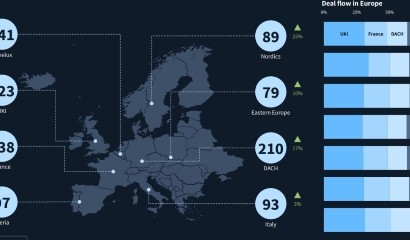Linqto shareholder Sapien Group emerges as case antagonist, challenging venue and Board’s authority to file case – Legal Analysis
Private market investment platform, Linqto, and three affiliates entered Chapter 11 on 7 July after ceasing operations in March, having determined that management had not been operating in compliance with certificates of formation, operating agreements, and customer agreements. Linqto is also the target of an investigation by the US Securities and Exchange Commission (SEC), while its non-debtor, broker-dealer affiliate, Linqto Capital, is under investigation by the Financial Industry Regulatory Authority (FINRA). Piling on, investor Sapien Group USA has now moved to transfer Linqto’s Chapter 11 case to Delaware from the Southern District of Texas. Sapien also alleges that issues under Delaware General Corporate Law (DGCL) run to the heart of the Chapter 11 cases, including whether the Board of Directors is properly constituted and was authorized to commence the Chapter 11 cases.
Linqto’s Chapter 11 case is not one that the Debtwire team typically would cover because the it lacks significant prepetition funded debt. However, like Purdue Pharma in some ways, it raises interesting legal issues that are worth the watch, the most imminent of which is a venue fight that could give a relatively new Texas bankruptcy court judge the opportunity to show us his views on venue. In this article, the Debtwire legal analyst team takes a look at Sapien’s forum shopping allegations and preference for a Delaware venue over Texas. We also discuss implications for the case going forward.
No nexus to Texas – no problem?
Four Linqto entities commenced Chapter 11 cases. Lead debtor, Linqto Texas, served as the hook to get the other debtors before the Texas Bankruptcy Court. According to Sapien Group, Linqto Texas has a California mailing address and was only recently created and registered as an entity in Texas, on 7 April 2025 – nearly one month after the other debtors ceased operating on 13 March. Sapien also contends that Linqto Texas “does not appear to have done any business, employed any persons, or held any assets in the State of Texas.” For these reasons, it appears that the Texas entity was created for no purpose other than allowing the other debtors’ Chapter 11 cases to be filed in the US Bankruptcy Court for the Southern District of Texas. The remaining debtors are Delaware entities that, according to Sapien Group, similarly have no nexus to Texas and instead conducted business out of California before ceasing operations.
Source: Declaration of Jeffrey S. Stein in support of Chapter 11 petitions, first day motions, and related relief
According to Sapien Group, it was the lead investor in Linqto, Inc’s Series AA preferred stock financing in 2020 and continues to hold these preferred shares, as well as SPV units in Linqto Liquidshares. Sapien also stated that, before the bankruptcy filing, it purchased common stock and received written consents and proxies for additional shares that together represent a majority of the common shares. According to Sapien, its consents and proxies can be used to replace a majority of the Linqto, Inc’s Board.
According to Jeffrey S. Stein, Linqto’s Chief Restructuring Officer, the debtors commenced their Chapter 11 cases to “explore restructuring alternatives that bring [their] operations and structure into compliance with applicable securities laws.” Rather than liquidate or pursue an asset sale, the company is looking “to address its historical regulatory compliance issues and related liabilities, protect Customers’ interests, and potentially resume operations through a compliant structure.” In terms of the company’s liabilities related to regulatory compliance issues, in October 2024, the SEC’s Division of Enforcement notified Linqto of an investigation to determine whether violations of the federal securities laws had occurred. Along with the SEC investigation, FINRA conducted an examination of Linqto Capital, Linqto’s non-debtor broker-dealer affiliate, and referred the matter to FINRA Enforcement in December 2024. Further, Linqto’s former Chief Revenue Officer, Gene Zawrotny, commenced a lawsuit on 7 October 2024, against Linqto and Joe Endoso (Linqto’s President at that time), alleging compliance failures and retaliation. In terms of assets, according to Stein, as of the 7 July petition date, Liquidshares held securities in 111 issuing companies with an estimated fair market value exceeding USD 500m.
The company ultimately engaged a new leadership team that investigated the regulatory issues and concluded that prior management knowingly failed to cure extensive and serious securities law violations that began as early as 2020, according to Stein. In fact, the new management discovered “extensive regulatory compliance violations along with a culture of systematic and pervasive non-compliance, requiring immediate and serious corrective action” which ultimately lead management to shut down operations.
Sapien Group argues that even though venue might arguably be proper in Texas due to the prepetition creation of the Texas entity (which Sapien contends was created for the sole purpose of manipulating the filing of the cases in Texas), the cases should proceed in Delaware. Delaware is the appropriate forum, according to Sapien, because it is where the formerly operating debtor companies were organized and because a court will need to apply DGCL and other Delaware law to determine whether Linqto’s (i) bylaws were properly amended, (ii) Board had authority to file the Chapter 11 cases, and (iii) Board was properly constituted and authorized to create two committees involved in conducting the internal investigation of the company.
Bankruptcy courts have discretion to transfer venue “for the convenience of the parties and witnesses” and “in the interest of justice.”[1] Texas bankruptcy courts considering a motion to transfer venue take into account factors concerning the individual parties involved in the case, including: (i) ease of access to sources of proof; (ii) availability of compulsory process to secure the attendance of witnesses; (iii) cost of attendance for willing witnesses; and (iv) all other practical problems that could make trial of a case easy, expeditious, and inexpensive.[2] They also consider (i) administrative difficulties flowing from court congestion; (ii) any local interest in having localized interests decided at home; (iii) the familiarity of the forum with the law that will govern the case; and (iv) the avoidance of unnecessary problems of conflict of laws or in the application of foreign law.[3] Sapien Group, represented by Leech, Tishman, Nelson, Hardiman as lead counsel and Bonds, Ellis, Eppich, Schafer, Jones as local counsel, cites the importance of the application of Delaware law as the chief reason for transferring the case. It does not, however, point to the location of any relevant witnesses or documents.
Judge Alfredo Perez is overseeing Linqto’s Chapter 11 cases. He took the bench just over one year ago (on 16 July 2024) and does not yet appear to have published an opinion on a transfer venue motion. However, his fellow judge, Judge Christopher Lopez of the US Bankruptcy Court for the Southern District of Texas, has well documented views on keeping cases in Texas. On 19 October, Judge Lopez famously denied a motion to transfer the venue of the Chapter 11 case of Johnson & Johnson (J&J) subsidiary Red River Talc to New Jersey. In that case, the US Trustee and the Coalition of Counsel for Justice for Talc Claimants moved to transfer the case to New Jersey, arguing that Red River Talc was affiliated with LTL Management, Red River’s predecessor, and that the transfer would be more convenient for parties. LTL had pursued two Chapter 11 cases in New Jersey that were both ultimately dismissed, and the proponents argued, essentially, that J&J had created the new Texas entity as a forum shopping mechanism to have its third subsidiary’s case proceed in a court other than New Jersey, where they had been twice dismissed.
Judge Lopez noted distinctions between Red River’s case and its predecessor’s cases, including that Red River entered Chapter 11 with a plan that enjoyed significant creditor support, and ultimately refused to transfer the case to New Jersey. Before that, in March 2024 in the case of Sorrento Therapeutics, Judge Lopez denied a motion to transfer the debtor’s case to another venue after the US Trustee argued that Sorrento manufactured venue in Texas by purchasing a PO box in Texas one day before filing for Chapter 11, and opening an account at a local bank in the days leading up to the bankruptcy filing. In refusing to transfer the case, Judge Lopez noted that the transfer venue motion came too late in the case,[4] opening the PO box and bank account do not amount to fraud or warrant sanctions, and the debtors’ actions in doing so are not new or unique to the Southern District of Texas. Unless informally resolved, Sapien’s motion will be worth watching as we will learn whether Judge Perez, who is not bound by Judge Lopez’s rulings, will be equally hesitant to transfer venue from Texas.
Delaware and Texas courts – choosing among favorites
Counsel to large corporate Chapter 11 debtors have long held preferences in terms of venue choices. While historically, the Southern District of New York was once a top choice, that gave way to Delaware and then opened up to the Southern District of Texas.
While many large corporate debtors gravitate towards the Southern District of Texas, Delaware is still a favorite as demonstrated in the table above, which reflects Chapter 11 filings of companies with at least USD 10m in funded debt. Moreover, in 2024, the law firms with the highest number of Chapter 11 retentions according to Debtwire’s Restructuring Database (which typically tracks Chapter 11 cases of companies with at least USD 10m in funded debt) have demonstrated a preference to file the majority of their cases in either the Southern District of Texas or Delaware.
While Kirkland & Ellis showed a preference for the Delaware bankruptcy court in 2024, that preference has since appeared to shift toward the Southern District of Texas. Latham & Watkins, on the other hand, has remained steadfast in its preference for the Southern District of Texas.
Mechanisms and motivations
In any event, Linqto is not represented by one of the top five debtor’s law firms listed above. Indeed, its choice to file in Texas is curious given that its Board and management may, in light of the regulatory investigations and shareholder disputes, look to protect themselves with releases in a Chapter 11 plan. The Fifth Circuit, in which Texas bankruptcy courts sit, has long stood out as one circuit – unlike the Third Circuit where Delaware bankruptcy courts sit – that held that non-consensual, non-debtor releases were impermissible even before the US Supreme Court issued its decision in Purdue Pharma holding that nonconsensual non-debtor releases are unauthorized under the Bankruptcy Code. In Red River’s case, for example, Judge Lopez made clear that “the Fifth Circuit has stated many times that nonconsensual third-party releases are not permissible.” This begs the question why Linqto would go to the trouble of creating a corporate entity to enable the other Linqto entities to file in Texas, which historically has not been as willing as Delaware to approve non-debtor releases.
Sapien’s motivation in moving Linqto’s cases to Delaware is equally intriguing. Although a Delaware Court would be best poised to rule on issues of Delaware state law, it does not appear that a Delaware bankruptcy court judge would be more inclined to rule in Sapien’s favor on the issues discussed above. Sapien’s motivations could prove to be more antagonistic. Linqto is represented by a Texas law firm, and therefore would be required to retain a Delaware-based firm to represent it if the cases were to be moved to Delaware, adding an extra layer of costs. Also, Sapien’s claim that it has the right to appoint a majority of Linqto’s Board members and its accusations questioning the Board’s authorization to commence the Chapter 11 cases may be indicative of a motivation to wrest control of the case, which boasts estate assets exceeding USD 500m, away from current management. In doing so, we would not be surprised to see Sapien move for the appointment of an examiner or a Chapter 11 trustee down the road. Both appointments are often warranted if there is an indication of mismanagement or impropriety by current management, however as discussed above, the company has new management and has ceased operations. We would expect the recently appointed unsecured creditors committee (UCC) to weigh in on the venue transfer motion and any potential requests for the appointment of an examiner or Chapter 11 trustee. Brown Rudnick and Orrick, Herrington & Sutcliffe are advising the UCC.
Sapien has requested a hearing on its motion on shortened notice – seeking a hearing on 5 August, when Judge Lopez will consider final approval of the debtor’s DIP financing. Judge Lopez has not yet entered a scheduling order with respect to that request, but the venue transfer motion appears on his interactive calendar for 5 August.
Prior to joining Debtwire, Sara was a law clerk to two judges in the United States Bankruptcy Court, S.D.N.Y. and practiced in the Financial Restructuring Group at Clifford Chance, where she represented financial institutions (as secured and unsecured creditors, defendants in adversary proceedings, and participants in DIP financings) in high-profile restructurings. She also represented foreign representatives in Chapter 15 cross-border cases.
This report should not be relied upon to make investment decisions. Furthermore, this report is not intended and should not be construed as legal advice. ION Analytics does not provide any legal advice, and clients should consult with their own legal counsel for matters requiring legal advice. All information is sourced from either the public domain, ION Analytics data or intelligence, and ION Analytics cannot and does not verify or guarantee the adequacy, accuracy or completeness of any source document. No representation is made that it is current, complete or accurate. The information herein is not intended to be used as a basis for investing and does not constitute an offer to buy or sell any securities or investment strategy. The information herein is for informational purposes only and ION Analytics accepts no liability whatsoever for any direct or consequential loss arising from any use of the information contained herein.
———-
[1] 28 U.S.C. §§ 1404(a), 1412. See also Fed. R. Bankr. P. 1014.
[2] In re Victorville, Case Nos. 08–35790, 08–35785 (Bankr. S.D. Tx. 2008).
[3] See id.
[4] Sorrento’s case had been filed over a year before the US Trustee moved to transfer venue, Sorrento had already secured confirmation of Chapter 11 plan, and Judge Lopez had already issued over 60 orders in the case.
[5] See In re Vantage Drilling Int’l, 603 B.R. 538 (D. Del. 2019).















